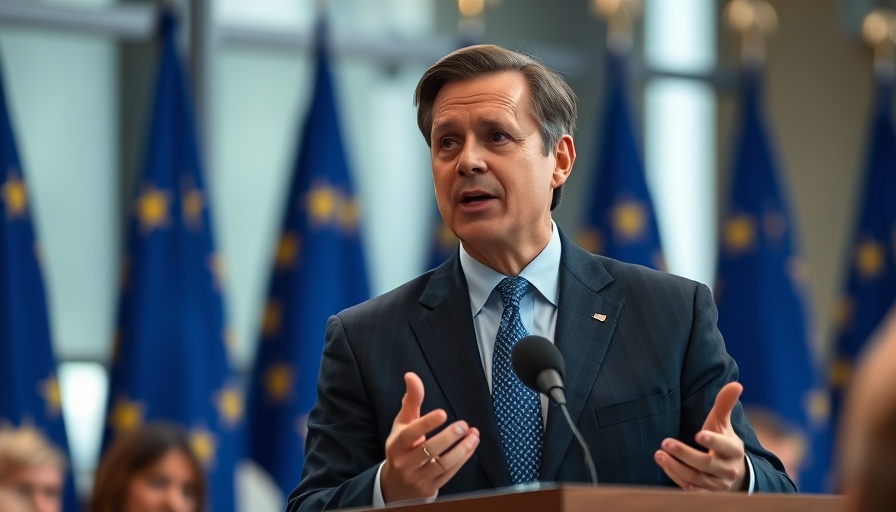
Thailand and Cambodia Agree to Ceasefire Talks Amid Unrest
U.S. President Donald Trump announced that leaders from Thailand and Cambodia will convene to negotiate an immediate ceasefire as deadly clashes continue along their border. This significant development comes after three days of increasing violence that has raised concerns not only in the region but also in global markets.
The Stakes: Understanding the Broader Implications
Thailand's acting prime minister, Phumtham Wechayachai, expressed gratitude toward Trump for his diplomatic intervention but maintained that any agreement would hinge on Cambodia's commitment to peace. “We agree in principle to have a ceasefire in place,” he stated through a Facebook post, underlining the delicate nature of diplomacy at play in this volatile situation.
This situation holds considerable weight in both military and economic spheres. The ongoing clashes have already begun to send ripples through stock markets, particularly as investors assess the stability of their international investments and trade opportunities in ASEAN (Association of Southeast Asian Nations) member states.
The Tactful Role of Diplomacy
Trump’s intervention highlights the role of international diplomacy in resolving regional conflicts. His warning—implying that future trade agreements would depend on the cessation of hostilities—demonstrates how international relationships are often intertwined with economic interests. In fact, trade deals have profound implications for investment strategies, potentially influencing everything from stock market volatility to real estate investing priorities.
Current Market Reactions: An Investors’ Perspective
The recent developments are crucial for investors keeping an eye on stock market trends and risk management strategies. Sudden geopolitical tensions can create uncertainties, prompting investors to revisit their portfolios. Are there better asset allocation choices available to mitigate these risks? Local factors, such as the ongoing conflict, can often influence investments across sectors, including international stocks and emerging markets.
Future Predictions: What Lies Ahead for Stock Market Dynamics?
As talks of ceasefire progress, the market may see a slight recovery if a resolution is reached quickly. Investors and analysts will be watching closely for news on a ceasefire as it could alter perceptions of stability in the region. Should both Thailand and Cambodia successfully negotiate peace, it could restore investor confidence and lead to a resurgence in sectors like tourism and regional trade, which substantially impact stock market performance.
Cultural and Economic Relevance: The Bigger Picture
The unfolding situation between Thailand and Cambodia transcends mere military engagement, punctuating the importance of international diplomacy in today's interconnected world. For communities aware of the implications, this moment serves as a reminder of how fragile peace can be amidst broader economic ambitions and territorial disputes.
Conclusion: Time for Investors to Act
As the potential for conflict resolution unfolds, it’s essential for investors to remain vigilant and informed. Understanding geopolitical dynamics is an integral part of developing sound investing strategies, particularly for those navigating the complexities of global markets. Stakeholders are encouraged to consider how these developments directly relate to their investment choices.
In times of uncertainty, portfolio diversification becomes critical. Investors should assess their risk tolerance and explore options such as international investments or sector-based investing that align with current events. It's a reminder that today’s events could lead to investment opportunities for the forward-thinking individual.
 Add Row
Add Row  Add
Add 



Write A Comment